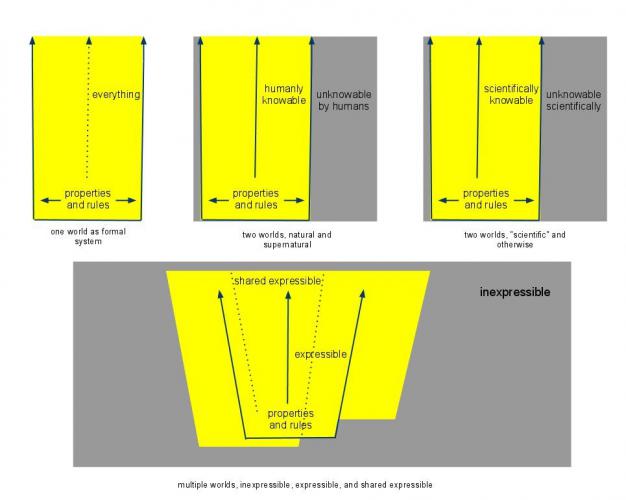Serendip is an independent site partnering with faculty at multiple colleges and universities around the world. Happy exploring!
Reply to comment

Forms of Inquiry
On the relation between formal systems and inquiry
Paul Grobstein
19 May 2010
Figures used in an evolving systems discussion. The top three figures are intended to represent several ways to conceive the relation between formal systems and inquiry that have in common the presumption that there is an external "reality" that exists independently of the process of inquiry into it. In each case observations are summarized by a set of properties and rules which it is presumed can in turn account not only for all existing observations but also predict all future ones (or assure that one behaves optimally in all future circumstances). Such an approach will in principle account for everything if the world is itself a formal system (left figure). Or account in principle only for that portion of the world which is humanly knowable (middle figure). Or account in principle only for that portion of the world that is knowable "scientifically" (right figure).
An alternative perspective, one that doesn't start with the presumption that there exists a knowable "reality" independent of the process of inquiry into it, is schematized in the lower figure. In this case, each individual derives from their own observations their own formal system, which corresponds not to "everything" or the "humanly knowable" or the "scientifically knowable" but rather to that of which that individual can speak/conceive (the "expressible"). "Reality" from this perspective corresponds to the overlap of possible conceptions of what is (the "shared expressible"). From this perspective, the "incompleteness" of understanding at any given time is not a fixed limitation but one that can be dealt with by changing the formal system (one or more of the "properties and rules") to add to the range of the expressible).



